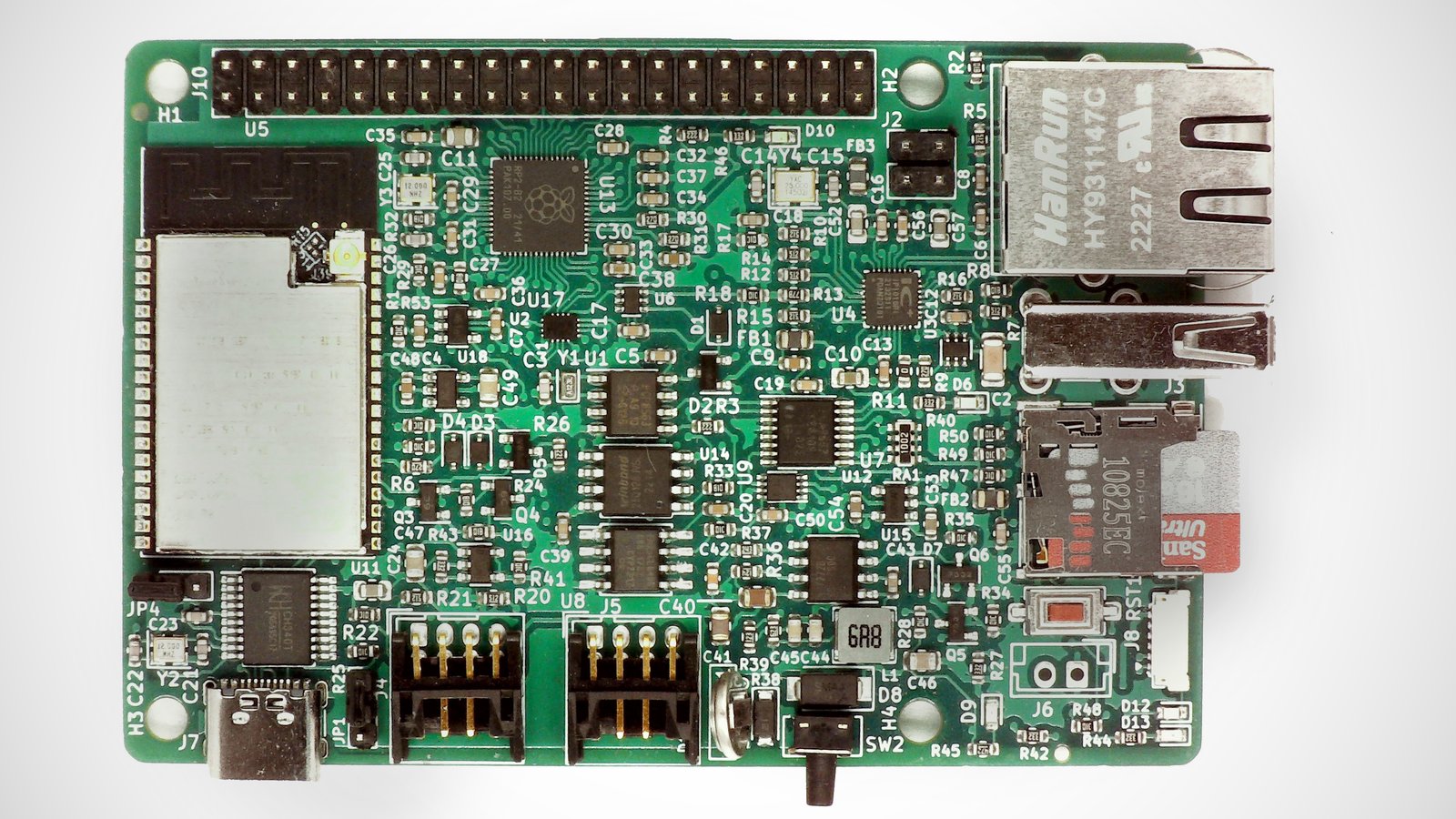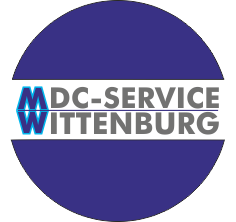MDC Products
Products
EsPiFF - Development board
EsPiFF is an ESP32™ board in a Raspberry Pi 4™ form factor,
capable of utilizing nearly every Pi 4 enclosure and HAT. EsPiFF packs
an additional punch with wired and wireless Ethernet, an SD card
socket, and a RP2040 co-processor. Can't find a Pi for that important
project? EsPiFF is the rock solid, low-power Pi alternative you've
been looking for.
EsPiff is particularly well suited to measurement, control, and
automation projects where the current consumption and heat generation
of a Pi or the potential instability of its SD card could be
problematic.

Features & Specifications
ESP32-WROVER with 8 MB PSRAM and 16 MB
Flash in a Raspberry Pi 4 form factor
Wi-Fi connectivity (requires an external
U.FL antenna)
10/100 wired Ethernet via IP101 PHY
PoE header, to use Raspberry Pi PoE HATs.
EsPiFF can be powered from a HAT or can power the HAT
Micro SD card socket for storage
Up to 3 UARTs
USB Type-C connector on CH340 USB-UART
for programming and powering up to 5V / 3A for power-hungry HATs
40-pin Rasperry Pi header, compatible
with all Raspberry Pi HATs
2 kbytes of fast FRAM for permanent
storage of process data. (Much faster then EEPROM, for key variables.)
RP2040 co-processor to emulate the Pi on
the 40 pin connector, with 8 MB Flash
External realtime clock, watchdog and
supervisor for high-availability, 24/7 applications
On-board supercap to keep the realtime
clock running for days without power. The supercap a practically
infinite lifetime
USB-Host on the USB Type-A connector
BOOT button for the RP2040, to switch
between USB-Programming and USB-Host/Device
ESP32 reset button and three user LEDs
HMI:
UART controlled displays,
programmable with C/C++/Python and LVGL™
HMI
HMI are revolutionary TFT displays in sizes
from 3.9 to 10 inch, what can be mounted on any surface by simply
drilling 5 holes. No need for a complicated cutout. The displays can
be controlled by a UART interface, and/or can be programmed in
C/C++/uPython or JavaScript.
In contrast to other smart/serial displays, the smartHMI can be programmed by the
user for any protocol. Examples are direct connection to Modbus, and
depend on the message, screen objects can be created at runtime,
rescaled, become (in)visible. Based on the powerful LVGL open source
library, new screen objects can be created, default behavior
overwritten, or extended.
Programmers from PC based
GUI application, who used C#, Delphi or Java, will feel soon at
home. Thanks to the huge popularity of LVGL, tons of examples can be
found in the internet.
Several GUI Form designer
for LVGL are available, open source or commercial.
Features & Specifications
Only 5 drill holes needed,
no cut-out required
Sizes: 3.9, 4.3, 5.0, 7.0,
10.1 inch
UART interface to be
controlled by any host: Arduino™, Raspberry Pi, ESP32 or any 3.3V
UART
Programmable in C/C++/uPython with use of the open source LVGL library™
Coming soon.
shelf kit
- upgrade cabinets to electronically monitor RFID equipped parts.
shelf kit
shelf kit
enables, to convert
standard steel cabinets to intelligent warehouse solution. With a
smart shelf kit, a cabinet is able to monitor all RFID equipped goods (non-metal and metal), detects lay ins and take outs, and
generates reports about all activities.
shelf kit cabinets can be networked (theoretical up
to 254) to a combined solution. A special HMI module with build in
card reader is available, to enable access to the goods only for authorized persons.
Features & Specifications
Easy to install in existing
cabinets
detect the presence of
hundreds of Rain-RFID items within seconds
detect the removal or
insertion of each individual Rain-RFID item, and record it
works with non- metallic
(laundry, medical) or metallic items
optimized RF and antenna
design, no missing item
cabinet-network on RS485
base, in daisy chain configuration.
Uplink to Ethernet network, for central data storage in PostgreSQL
database.
configurable reporting
system.
MHI module with integrated
HF RFID card reader for user authorization. Legic
reader modules for higher security are available.
Lock
activation (24V, up to 2A) and lock status read.
Up to 4
additional sensor signals (9 to 24V) can be read
additional
output (24V, up to 2A) available. For example, for cabinet lights,
alarms, cooling/heating.
Matching
locks with cables and connectors are available on request.
A typical application is a
laundry management system in a hospital:
Depend on how many people
use the system, a few to up to a dozen cabinets are equipped with shelf kits, and
inter-networked. These cabinet-network is connected via an Ethernet
line to the company Ethernet network. In one cabinet, the HMI is
installed. One or more drop cabinets are can be added .
Our Reference installation
is a German hospital, the Heilig Geist Spital in Freising. Our laundry management system organize the daily take out and returning
of the staff laundry, and runs 24/7.
Raspberry Pi is a trademark of the Raspberry Pi Foundation.
RP2040 is a Product of the Raspberry Pi Foundation.
ESP32 is a trademark of the Espressif Systems (Shanghai) Co., Ltd.
Arduino is a trademark of the Arduino AG
LVGL is a open source library under MIT License (https://github.com/lvgl/lvgl)





